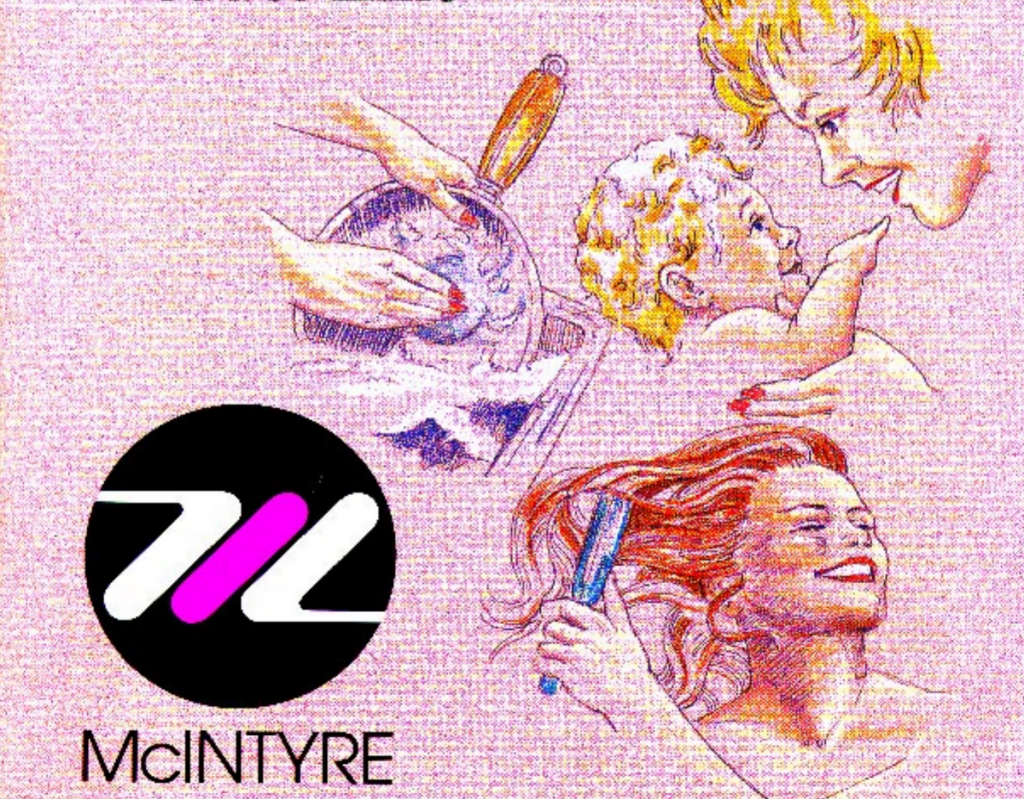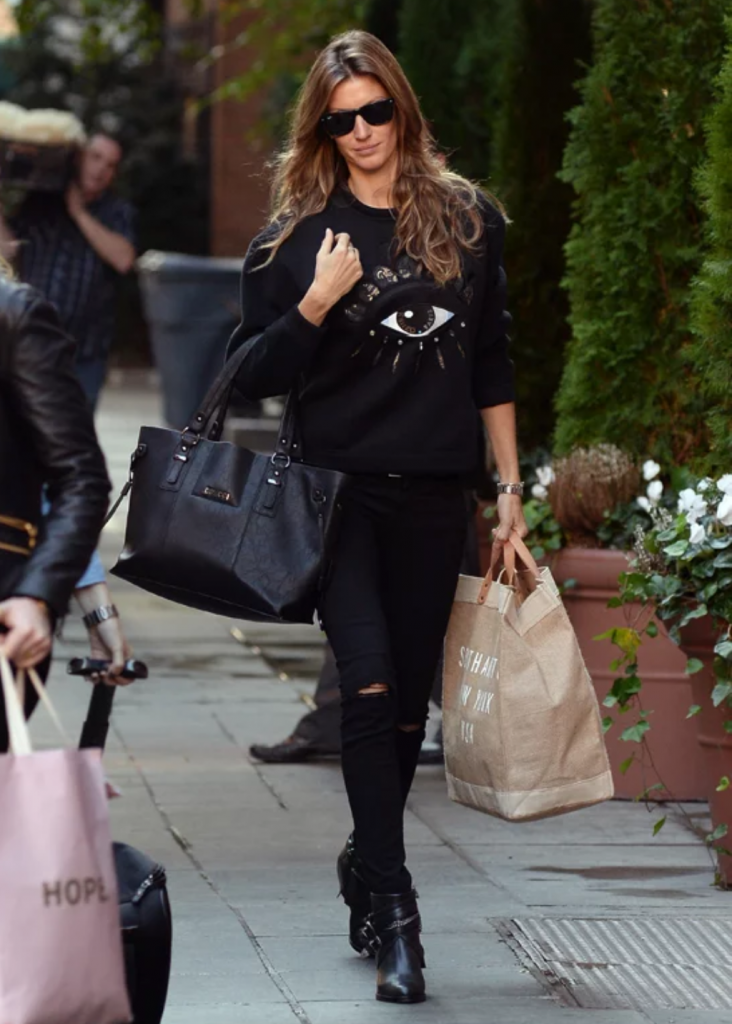Surfactants Monthly – January 2021
Well, it was a bit different to last January, eh? No meetings in Orlando and that nice mid-winter golf outing on the Sunday. But look, most of us are working, getting a nice salary and not facing foreclosure, eviction and bankruptcy unlike folks in some industries. Something here for you to look forward to: Our upcoming slate of surfactants conferences for ’21 – still online. We have i) World on 25 – 27th May and ii) EU/Asia on 9 – 10th November. Go to the site for more information . We also have the training courses starting March 9th. Right now, we are not taking registrations, but you can “register interest” here . So you might want to do that. I want to highlight particularly the awards. We are re-launching and refurbishing these as they are becoming a hugely popular feature.
By the way, if you want to see what I looked like without a haircut in the first US lockdown in 2020 see the video I recorded to outline our training courses. If you’d rather not, you can get all the key information on the site, without, thankfully, having to see the video.
This first piece of news just missed the cut-off for last month and so my apologies if it is already old for you : According to ICIS, Solvay will sell its North American and European amphoteric surfactant business to OpenGate Capital, a private equity firm based in Los Angeles, California. “This agreement represents another critical step in the execution of our strategic plan as we further focus our home and personal care portfolio on growing specialty formulations and custom solutions,” said Michael Radossich, president of Solvay's Novecare global business unit. The Belgian chemical company said the sale includes three main production sites supporting the amphoteric products lines located in University Park, Illinois, Genthin, in Germany, and in Halifax, UK, along with a tolling business in Turkey. The agreement includes tolling and service agreements between Solvay and OpenGate to ensure a seamless transition and minimal customer disruption. Solvay expects to close the sale by the end of March, pending completion of required regulatory approvals. The financial terms of the contract were not disclosed by the company.
Here’s a bit more to consider. This is basically Solvay selling the McIntyre business that they acquired back in 2009 (I recall it well). I recall particularly that McIntyre was a pretty nice specialties business at the time. No real sense of how it has progressed over the last 12 years. Heading up the new independent business will be John Foley, familiar to many as having headed up North American Novecare for Solvay before a stint as CEO of KMCO. I know nothing about Opengate. From the website, they look like a fairly typical mid-market PE. I can only speculate that there would have been some competition for this asset – especially among established industry participants or those in adjacent spaces. It was probably a competitive bid and so congrats to Opengate for winning this one. Let’s see if they can restore some of the former glory. First order of business – what’s the new name. Send me your suggestions and I’ll publish them in next month’s blog. Here’s one to get you started: McIntyre Chemical.
In European Fatty Alcohols – Samantha Wright of ICIS wrote at the beginning of the month: European fatty alcohols supply is likely to remain balanced through 2021 as there were no production issues in the region at the end of 2020. Availability will depend on feedstock supply, with the palm oil markets expected to see some tightness heading towards 2021. Adverse weather conditions in Asia coupled with a disruption to the supply chain caused by the coronavirus have significantly reduced palm oil harvests Upstream palm kernel oil (PKO) availability has been less impacted than crude palm oil (CPO) stocks as there was previous length in the PKO market -although the sharp rise in CPO prices has pushed up PKO values as well. If securing palm material in the first quarter remains difficult this could impact PKO supply if inventories are depleted. Downstream surfactants demand is likely to remain stable in the first half of 2021. There was a slight boost in buying interest at the beginning of the pandemic as detergent application use increased, but demand has been relatively steady for most of 2020.
There is no reason to believe that buying interest will not remain at current levels heading into the first quarter [ says Samantha – interesting]. Some players are concerned that production margins for surfactants could be squeezed next year following recent price gains in PKO.
Toward the end of the month, Samantha went on to report that European fatty alcohols first-quarter contracts have been agreed at triple-digit increases amid recent hikes in feedstock palm kernel oil (PKO) costs. PKO values have almost doubled since the end of September, steadily rising from around $750/tonne at the time to $1,366/tonne last week, both prices on a delivered (DEL) Malaysia basis, according to trading house Matthes and Porton. Tightness arose in the market at the end of the fourth quarter amid the global container shipping shortages.
This has continued into the first quarter, and limited availability is likely to continue through the quarter and possibly into the second quarter dependent on how long it takes to catch up with delayed orders. Demand is healthy from the downstream alcohol ethoxylates market, though ongoing force majeures in the ethylene oxide (EO) market are halting orders in some cases. This is balancing out the fatty alcohols market slightly amid limited material; however, when EO players return to the market and alcohol ethoxylates demand increases, tightness could reappear.
Continuing with the Fatty Alcohol beat in the US, Lucas Hall writes in ICIS: US Q1 fatty alcohols contracts have largely been finalised, with freely negotiated settlements having largely emerged at an increase from Q4 amid bullish feedstock costs, record freight costs and higher delivery costs against the backdrop of stable-to-strong demand. The Q1 quarterly assessment will be made next week. Mid-cut alcohols faced more significant upward pressure than C16-18 alcohols, amid expectations of continued strong demand across the core personal care sector throughout the pandemic in 2021. C16-18 prices posted smaller increases amid expectations of a slower, more uneven demand recovery across industrial end segments in 2021.
Overall bullish feedstock costs across the oil palm complex continue to put pressure on the wider market. Bullish feedstock costs are squeezing production margins amid uneven downstream demand in southeast Asia, weighing on production. Limited inventory space is also weighing on production amid tight vessel availability in the region. Mass balance material remains tight from the summer, sustaining upward pressure on premiums. The US ban on palm oil imports from Malaysian producer Sime Darby is expected to further tighten mass balance markets, adding to the pressure. Sime Darby is the largest palm oil producer by land size.
Sasol remains on force majeure for linear alcohols and ethoxylates at its US Lake Charles, Louisiana, Chemical Complex (LCCC) following a hurricane-related outage in 2020. The plant restarted in late October. Q1 contracts have largely emerged at an increase from Q4. Prices for mid-cut alcohols have been heard in the low-80 to mid-90 cents/lb DEL (delivered) USG (US Gulf) range.
Prices for C16-18 alcohols have been heard in the low-80 to upper-90 cents/lb DEL USG range. C16 supply from southeast Asia is tight, driving a premium for volumes with higher C16 content over C18.
Prices for mass balance premiums have been heard around 4-6 cents/lb, with premiums holding more firmly at the 6 cents/lb range. The sharp increase in offers prompted some demand destruction for Q1 volumes. Some buyers adopted a wait-and-see approach as a result, buying less volumes or spreading their volumes across multiple producers in order to mitigate exposure to the countervailing cost pressures. However, continued bullishness in feedstock markets on top of lengthening lead times continues to put pressure on the market, with spot prices being heard above $1/lb for product landing in March. Synthetic alcohols prices have been heard mixed amid the ongoing force majeure in the US market. Demand into Mexico is mixed amid recent [ and continuing] ethylene oxide (EO) disruptions in the country.
Lucas continues his analysis toward the end of the month: Relatively bullish feedstock markets, record high freight costs, and tight shipping equipment availability continue to maintain pressure on US fatty alcohols markets against the backdrop of stable-to-strong demand across the core cleaning sector and rebounding demand across most other downstream sectors from the onset of the coronavirus pandemic last year. Although feedstock costs across the oil palm complex have entered a downward correction in recent weeks amid decreased demand ahead of the Lunar New Year holiday, record high freight costs from Asia to the rest of the world and tight shipping equipment availability continue to pressure the wider market.
Palm
| Product | Delivery | 26 January | 19 January | 12 January |
| CPO | DEL, south Malaysia | M$3,650 | M$3,600.00 | M$3,970.00 |
| PKO | DEL, south Malaysia | $1,197.09 | $1,249.90 | $1,365.99 |
| Palm Olein | FOB, Malaysia | $947.50 | $960.00 | $1,025.00 |
| Palm Stearin | FOB, Malaysia | $925.00 | $945.00 | $1,000.00 |
| PFAD | FOB, Malaysia | $825.00 | $840.00 | $885.00 |
Meanwhile, the news for fatty alcohols’ companion building block, ethylene oxide is reported for the US as follows: US December ethylene oxide (EO) contract prices settled at an increase, following the same-month feedstock ethylene contract. ICIS assesses US prices higher by 1.8 cents/lb ($40/tonne), at 54.0-63.5 cents/lb FOB (free on board). This represents the highest level since October 2018.
It seems we can’t avoid news out of Brazil here at the blog. Around mid-Jan, ICIS reported that Ultrapar (soon to be former owner of Oxiteno) announced it suffered a cyberattack and as a result interrupted the operation of some of its systems, the Brazilian conglomerate said on Tuesday. The company said that the interruption was a precaution, and it is partially impacting the operations of its subsidiaries. This is the second major Brazilian company to report a cyberattack in the span of months. Braskem reported a cyberattack in October 2020. Ultrapar is currently operating in contingency mode while it evaluates the extent of the incident, the company said. Ultrapar, as you know, is the owner (for now) of Oxiteno. By the way, other companies in our larger industry have had major hacking problems. Symrise was hit by a ransomware attack in December which impacted operations globally. Gotta be careful, dear reader. One of my colleagues had his email hacked and was sending weird enough emails to us that we noticed – but only more or less by chance.
Still in Brazil – The great Al Greenwood of ICIS reports - Petrobras plans to sell eight of its refineries by the end of April. Earlier, Petrobras had planned on signing purchase and sales contracts for the refineries at the end of 2020. It amended the deadline, which was approved by Brazil's antitrust regulator (CADE).
The following shows the eight refineries that Petrobras wants to sell.
| Refinery | Location | Capacity (bbl/day) |
| LUBNOR (Lubrificantes e Derivados do Nordeste) | Fortaleza, Ceara | 8,000 |
| REFAP (Alberto Pasqualini) | Canoas, Rio Grande do Sul | 208,000 |
| REGAP (Gabriel Passos) | Betim, Minas Gerais | 166,000 |
| REMAN (Isaac Sabba) | Manaus, Amazonas | 46,000 |
| REPAR (Presidente Getulio Vargas) | Araucaria, Parana | 208,000 |
| RLAM (Landulpho Alves) | Mataripe, Bahia | 333,000 |
| RNEST (Abreu e Lima) | Ipojuca, Pernambuco | 130,000 |
Source: Petrobras
The eighth refinery, SIX, is in Sao Mateus do Sul, Parana.
LUBNOR's capacity includes 2,000 bbl/day of naphthenic base oil.
Petrobras has received binding offers for LUBNOR, REMAN and the SIX unit.
Back in December, Petrobras said it was seeking final offers for RLAM. It had started talks with Mubadala to sell the refinery in July. Those talks had finished, and the final offers will be based on the negotiated versions of the contracts with Mubadala, Petrobras said in December. It expects to receive the final offers in January. On 10 December, Petrobras said it expected to receive binding proposals for REFAP in Rio Grande do Sul state and REPAR in Parana state. One of the bidders for REPAR is Ultrapar, a Brazilian conglomerate that owns the fuel retailer Ipiranga and is still, but not for long, the owner of Oxiteno. Other bids came from a consortium led by Raizen and China Petroleum & Chemical Corp (Sinopec). In the first quarter of 2021, Petrobras should receive binding proposals for RNEST in Pernambuco state and REGAP in Minas Gerais. Interesting right? - that Ultrapar should view Oxiteno's surfactants as a sell and a refinery as a buy. Think about that..Ultrapar considers themselves smart financial players. I do also. In their view, then, perhaps they see peak surfacant valuation coupled an opportunty to buy into refining at a lower than average valuation. What do you think?
Finally two great pieces of investment and expansion news from some good friends of the blog.
First up – from Libra Chemicals in the UK, as announced on their website:
"Libra Speciality Chemicals are delighted to announce that we have cut ground on our latest multi-million-pound capital investment programme in Irlam, UK, continuing our commitment to the future of the UK chemical industry.
Following on from the construction of our industry-leading betaine plant in 2019, we are now:
- Installing new technology to produce novel low salt betaines.
- Expanding the betaine plant capacity from 32ktpa to 50ktpa to meet demand.
Low Salt Betaines
With the rapidly increasing shift away from sulphates, our customers are seeking to formulate handwash, body wash and hair care products with alternative surfactants that give better efficacy. Sulphates, such as SLES, are increasingly suffering from negative press and increasing legislation concerned with residual levels of 1,4 dioxane, ethylene oxide and also sulphate. There are also other reasons why formulators want to move away from SLES – it is a skin sensitiser, it can cause the skin to become dry, it can strip out oils in the hair leaving it dry and damaged and it can affect dyed hair.
Betaines are well known for excellent detergency and foam boosting properties and do not suffer from the problems listed for SLES. However, standard betaines contain ~6% salt, which causes major issues with viscosity control in formulations, limiting the inclusion levels to ~2%.
Libra’s new technology will produce betaines with ultra-low salt levels, typically 0.5% salt (but can even be 0.05%), giving formulators great freedom to include betaines at 10 -12%, offering the opportunity to make fantastic new products for the coming years.
Capital Investment
This project will include:
- An additional 40,000-litre reactor to make the betaine CAPA intermediate (cocamidopropylamine).
- An additional 60,000-litre reactor to make the finished betaine products.
- A new high-capacity tank farm, adding an additional 865,000 litres of storage for products, and weighbridge complex dedicated to our betaine plant.
- A complex system of plant to desalt the betaines to produce an exciting new range of low salt betaines available for formulators."
Next up Colonial Chemicals – a long-established private company, making waves recently. I’ve been impressed with some of the new products and initiatives of recent years. Here form their website on January 20th.
"Colonial Chemical, Inc. is pleased announce the start of construction of a new specialty chemicals manufacturing plant in Dammam, Saudi Arabia. The new facility is named Colonial Chemical M.E. Arabia. This facility is a joint venture with Sadeem Investments and Earth’s Reservoir for Oil and Gas, EROG. Colonial Chemical, Inc. is providing the technology and operations knowledge for the plant while Sadeem Investments and EROG are responsible for local operational oversight and construction support. The Board of Directors overseeing the joint venture is headed by David Anderson, Colonial Chemical, Inc. President, as the Chairman. Mohammed Abduldaim, EROG President, is the Vice-Chairman, and other members include Dr. Peter Chetcuti, David Anderson Jr and Douglas Wynn.
This operation will primarily provide a source of locally manufactured specialty surfactants and other chemicals for oilfield, industrial lubricants, water treatment, paper, paints, coatings, personal care, household, and industrial cleaning applications. The new plant will offer manufacturing technology capabilities for a variety of chemicals as well as toll blending capability for finished formulations and custom chemical manufacture. The plant will allow customers in Saudi Arabia and the region to achieve high local content levels required by localization initiatives such as IKTVA, NUSANED and NIDLP.
Construction is underway on a nine-acre plant that will include reaction vessels, distillation columns, toll blending and mixing vessels, pilot scale equipment for development, warehousing and tank farms. Additionally, construction will include state-of-the-art laboratories for R&D and formulation development and administrative offices for supply chain and customer service personnel. The plant will also house packaging and labeling operations.
Manufacturing operations are expected to commence in Q4 2021. Raw materials will be sourced locally to produce amine oxides, quaternary ammonium compounds, hydroxypropyl sultaines, betaines, propionates, ether carboxylates, imidazolines, phosphate esters, EPI-sulfonates, and phosphates.
“Colonial Chemical has long been a significant provider for oil field service companies as well as products for personal care, household, and industrial cleaning applications in the U.S. The new operation in Dammam will take advantage of local sourcing throughout the value chain and position Colonial Chemical, M.E. Arabia as a preferential source of product and services for customers in that region,” said David Anderson, President, Colonial Chemical, Inc. “Along with shorter lead times, Colonial Chemical M.E. Arabia will also offer the benefit of toll blending and manufacturing which is a highly desirable function in this market. We have built mutually beneficial relationships in the past few years with our local investors in this new operation and are all excited to see our plans move forward.”
Colonial Chemical, Inc. is a privately held manufacturer of market-leading specialty surfactants with a focus on developing safe and innovative ingredients for modern formulary. The company supplies high quality products to the personal care, household, oil & gas, and industrial lubrication marketplace. Colonial Chemical serves North America and over 50 countries internationally. Learn more at www.colonialchem.com."
And then more recently from Colonial some management changes assuring a continuation of the business under current ownership and control – nice to read..
“Colonial Chemical, Inc. is pleased to announce two new promotions at the company. Effective January 25th, David Anderson, Jr. will be promoted to the position of President. In his new role, David will assume responsibility for the total operation of Colonial Chemical, Inc. and to lead in the company’s strategic goals and future expansion.
David Jr. joined Colonial Chemical in December 2009 as Northeast Territory Manager, the first full-time salesperson for the company. He has progressed through the positions of Sales Manager and Vice President of Sales and Marketing. David Jr. has a Bachelor of Science degree from Georgetown University and a Master of Arts degree from Yale University. Prior to Colonial, his previous position was four years with Robert Walters in Tokyo, Japan as a Technical Recruiter and Manager of the IT Sales & Marketing Recruitment Team.
David Anderson, Sr., the company founder, has been named to the position of Chairman. Mr. Anderson, Sr. has been with the company for 33 years and working on his 49th year in the surfactant industry. As Chairman, his primary role will be to lend his experience, knowledge and expertise to coach and consult with the management team and ensure Colonial continues to grow and be successful. Mr. Anderson, Sr. will also be active in the startup and development of the newly announced Colonial Chemical M.E. Arabia.
“David Jr. has one of the strongest work ethics and overall skillsets in this industry, and a great deal of the growth of the company in the past few years rests on his shoulders,” says David Anderson, Sr. “Since joining us full-time in 2009, he’s been a tremendous asset to our organization, and we’re confident that under his leadership, he’ll continue to guide us to even greater success in this expanded role.”
“Colonial intends to remain a privately-owned, family company – free of outside investment for many years to come,” stated Anderson. “We continue to believe that a stable ownership structure benefits our customers, our employees, and our suppliers the most.”"
That’s it for this month’s news. Please get ready to participate in our next digital event and please do think carefully about your awards nominations.
Let me finish with this:
Think about how fragile our civilization here, that we’re enjoying right now, is. I’m talking more about the COVID impact than any other event in the news, but pick your societal pressure. History is replete with great civilizations that succumbed to plagues, military defeat, social collapse or a combination of all three and more. Most readers (not all) of this blog are in places where standards of living are historically high and human rights are pretty much taken for granted. Don't though. Don't take any of it for granted. If you look at the fate of historical cities like Babylon or Tenochtitlan, you’ll see no civilization lasts forever. This one won’t either, if past trends continue, but there’s no need to hasten the end or make it more painful than its needs to be. What to do? Simple to say and hard to do. Restrict evil and pursue truth. Not rocket science right but hard nonetheless. The great Aleksandr Solzhenitsyn has a couple of things to say about these matters. ..
First from the Gulag Archipelago:
“Gradually it was disclosed to me that the line separating good and evil passes not through states, nor between classes, nor between political parties either -- but right through every human heart -- and through all human hearts. This line shifts. Inside us, it oscillates with the years. And even within hearts overwhelmed by evil, one small bridgehead of good is retained. And even in the best of all hearts, there remains ... an unuprooted small corner of evil. Since then I have come to understand the truth of all the religions of the world: They struggle with the evil inside a human being (inside every human being). It is impossible to expel evil from the world in its entirety, but it is possible to constrict it within each person.”
And this one …..” “The simple step of a courageous individual is not to take part in the lie. "One word of truth outweighs the world.”
Hmm .. we’ve seen this next video already from Akira the Don, but it’s worth another watch – the things that you do and you don't do are far more important than you think…..and you can read the Gulag Archipelago and decide if that’s a place you’d like to visit… because that’s what happened in the 20th Century.
We have this thing in the west, Freedom, that has brought incredible prosperity, safety and fulfillment. What is it though. What is Freedom? Here’s one perspective. It may not be yours, but worth a listen ..
Wow – that was quite serious, wasn't it? How about we end on more of a feel-good note – still with a message though..













